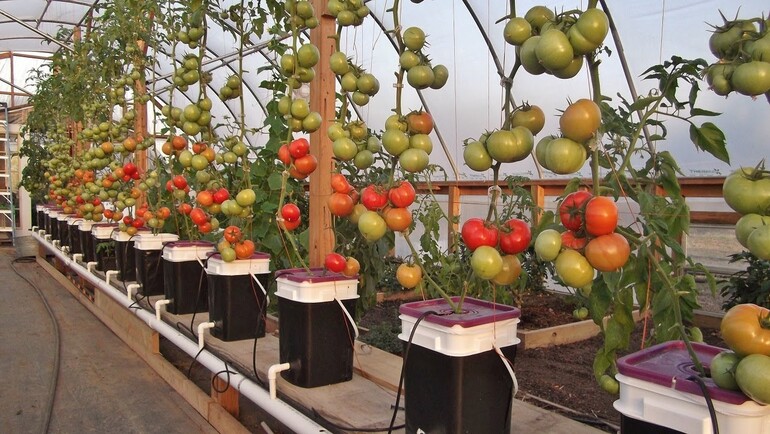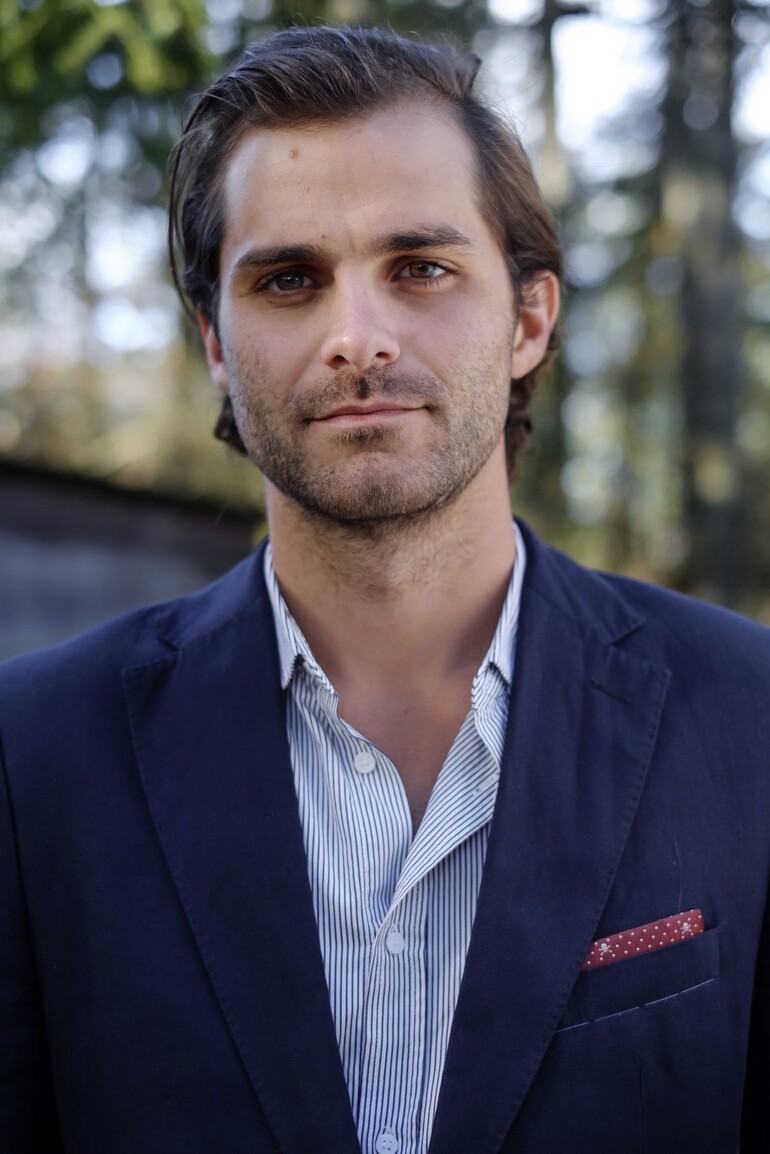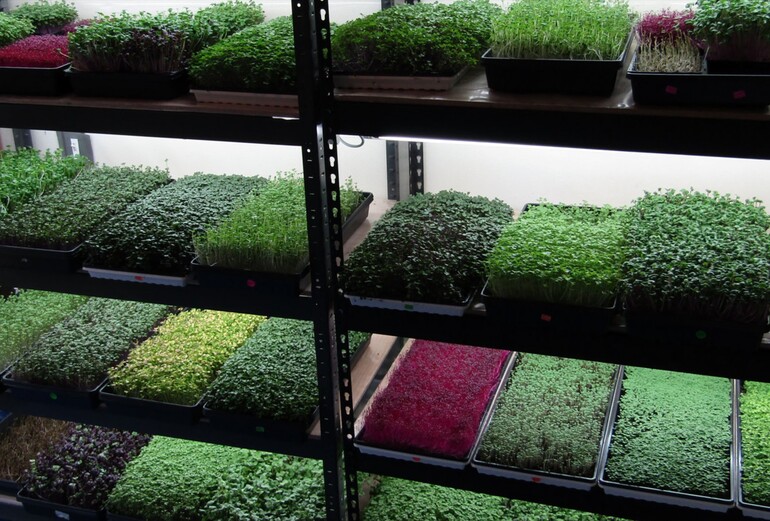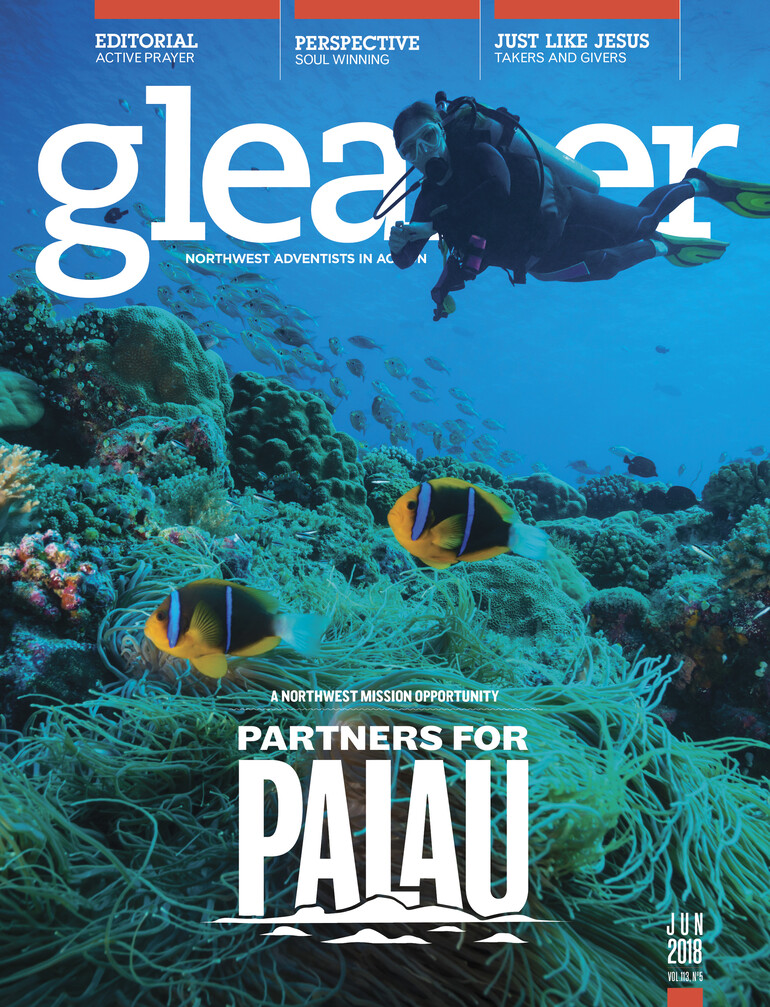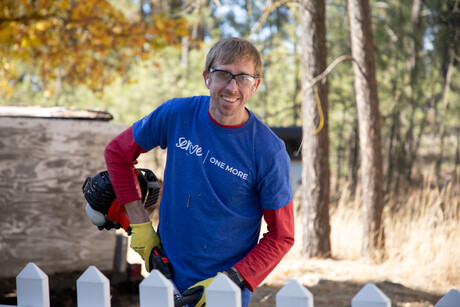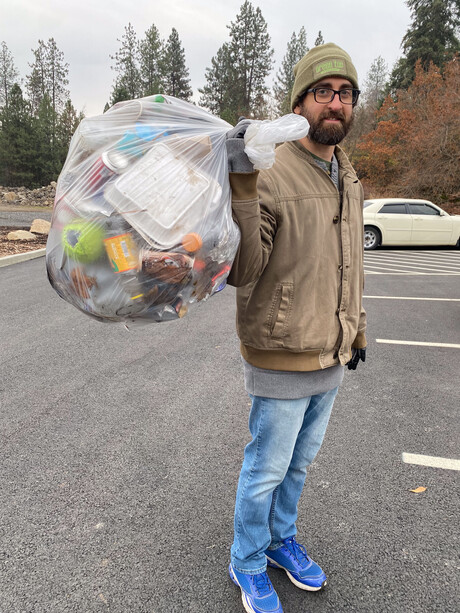What is green on the inside, metal on the outside and high-tech all over? Why, a container full of microgreens, of course!
Introducing the all-new agriculture program at Upper Columbia Academy (UCA) in Spangle, Wash. The era of farms at our Adventist schools was thought to be long past, but in this day of modern agriculture UCA is taking a bold step back into this exciting and growing field. But how does one go about establishing a viable agriculture program in today’s market?
Enter visionary donors, altruistic alumni and dedicated current staff. Two donors who have long believed in the power and importance of students working in the soil gave $100,000 each toward the development of the program, intending for modern agriculture to be incorporated into the curriculum. Alumnus Peter Vercio (’03), who is part of a company that sets up farms and agriculture systems like that envisioned for UCA, stepped in to set up the operation. And UCA staff will be operating the agriculture program and integrating it into the curriculum.
Vercio was headed toward law school when he took a detour. After working in business for a stint in the oil field of North Dakota and realizing he loved the idea of working in and starting businesses, he went to work in California for a solar company. However, he soon realized his work wasn’t making the difference he wanted it to.
At the same time, he began to recognize the gift of health he had been given by growing up Adventist as he interacted with colleagues who didn’t have the knowledge of healthy eating and living he had. His desire to be purposeful and make an impact with his time and talents combined with his emerging interest in healthy foods converged as he relocated to Colorado and started Sirona Life, a vertical farming service.
At UCA, Vercio will be combining his expertise in business, his desire to make an impact with his work, his passion for giving students an edge by providing healthier food options and taking an active role in the growing process, and his love for his alma matter to kick off a state-of-the art agriculture program. Vercio plans to develop the greenhouse and put multiple kinds of growing apparatus, including hydroponic gardening equipment, inside.
He will also set up a container “farm,” which will mostly be used to grow microgreens — an up-and-coming food product. “There are huge amounts of money flowing into the agriculture technology field right now,” says Vercio. “We can give UCA students the tools for big job possibilities for the future.”
UCA staff Ted McConnachie will transition from the maintenance department to farm manager this summer as he develops the program. He will be responsible for overseeing student labor as well as marketing the agriculture program's harvest. He is excited about the future. “This will be a fantastic place for kids to learn a completely new way of growing food,” he says.
In conjunction with Andrews University in Berrien Springs, Mich., UCA will offer a related dual-credit class, “21st-Century Agriculture.” Additionally, all teachers will be encouraged to integrate the agriculture program into their curriculum.
Judy Castrejon, biology teacher, is excited about the integration possibilities, and chemistry teacher Charles Hartman is already dreaming of having his students conduct soil analyzation experiments and see what various soil treatments do to their original numbers.
The agriculture program is just one more reason Upper Columbia Academy is “a place to grow.” Visit www.ucaa.org to learn more.




